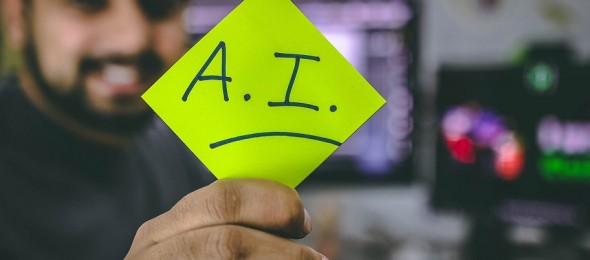Attorney Paul Bennett Marrow, member of the American Arbitration Association’s Commercial Panel and Domestic Arbitration instructor at New York Law School, Mansi Karol, Director of ADR Service for the Commercial Division at the American Arbitration Association in New York, and Steven Kuyan, Director of Entrepreneurship at New York University’s Tandon School of Engineering and Managing Director of the NYU Tandon Future Labs, have published “Artificial Intelligence and Arbitration: The Computer as an Arbitrator — Are We There Yet?,” 74 Dispute Resolution Journal 35 (2020) (American Arbitration Association), 2020. In their article, the authors examine whether a computer can or should issue enforceable binding arbitration decisions using artificial intelligence.
Here is the abstract:
Artificial Intelligence (A.I.) seems every place these days. This article asks: Using A.I., can a computer serve as an arbitrator issuing final, binding awards, with little or no involvement by a human? The authors conclude the answer is “YES.” Arbitration and A.I. have something in common; something that does not exist when A.I. is applied to courthouse litigation. Both have severe constraints put in place by humans; boundaries that are identifiable and enforceable. With arbitration, the constraints are set out by the parties in the arbitration clause. Arbitrators cannot exceed this authority, and if an arbitrator does, the award can be vacated. A crucial distinction exists between the actions of a judge and an arbitrator. A judge has a first obligation to the law and judges have the power to create and modify jurisprudence. Judges have broad discretion and are not bound by the wishes of those who appear before them. The judge must always apply the law. The arbitrator has a first obligation to the parties as expresses in an arbitration clause, constrained only by the injunction that an arbitrator cannot be required to act in a manner violating public policy or is criminal. If the parties fail to require the application of law, an arbitrator can do what is just under the circumstances. Unlike the judge, the discretion permitted an arbitrator is severely restricted by the demands of those whom the arbitrator serves. Algorithms are slaves to the dictates of the programmer. Absent information from a human, an algorithm has no understanding as to what discretion is or how the concept operates. An algorithm cannot go off on its own doing whatever it pleases. A computer programed to mimic the behavior of an arbitrator can do no more than what the arbitrator may do. These distinctions make arbitration the ideal candidate for applying A.I. for resolving some, but not necessarily all disputes. The authors conclude that A.I. has a place for arbitrating smaller disputes that might otherwise be lost because of the circumstances of a disputant, judicial inefficiencies, or worse, outright corruption. Technical topics are discussed and explanations about how A.I. works are provided in terms the non-computer scientist can easily understand. These include “machine learning” and its various subsets, including “deep learning,” how mathematics and pattern-recognition probabilistic methods play a role in the creation and operation of an algorithm and how to overcome the concern of many that a computer is a “black box” the operation of which is beyond human comprehension. A.I. is applied to a simple dispute involving a dry cleaner who is claimed to have damaged a garment given over for cleaning. The authors conclude that properly structured, A.I provides the basis for a computer taking on the role of an arbitrator, issuing final and binding awards without almost, if not any involvement by the human.
This and other publications written by the authors may be downloaded free of charge from the Social Science Research Network.
Photo by: Hitesh Choudhary on Unsplash







![Digital Disagreements: Artificial [Intelligence] Arbitration](https://i0.wp.com/www.disputingblog.com/wp-content/uploads/2013/03/Calatrava-Bac-de-Roda-Bridge-.jpg?resize=150%2C150&ssl=1)






